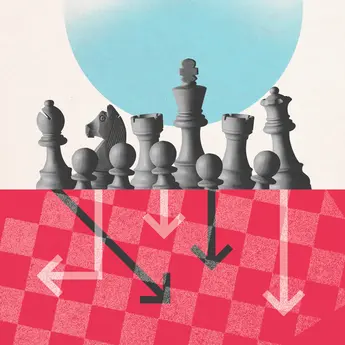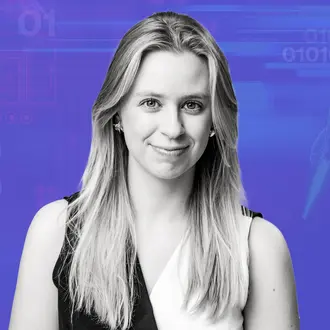Entrepreneurship
A road map for startups, from Moderna’s co-founder
Adversity can cultivate instincts that serve entrepreneurs well, says venture capitalist Noubar Afeyan. Here are his three tips to start innovating.
Entrepreneurs can receive a lot of advice in the early stages of their startups, but “be unreasonable” isn’t always something they hear.
Unless they’re talking with Noubar Afeyan. As the co-founder and chairman of Moderna, which pioneered the use of messenger RNA in its COVID-19 vaccine, he believes that acting counterintuitively is one sign of an innovative mindset.
“Why do we expect extraordinary outcomes from reasonable people doing reasonable things?” Afeyan asked an audience of international entrepreneurs at the Innovation in Global Growth Markets conference hosted by the MIT Kuo Sharper Center for Prosperity and Entrepreneurship.
“If all you’re doing is being reasonable, you should expect a lot of competition, because that’s what everybody else is doing,” said Afeyan, whose venture capital firm, Flagship Pioneering, has launched more than 100 bioplatform companies.
The Kuo Sharper Center was founded in 2007 based on the belief that entrepreneurs and their innovation-driven solutions are key to advancing sustainable and inclusive prosperity in global growth markets. That message resonates with Afeyan, who emigrated to the U.S. from Beirut when he was a teenager and earned his doctorate in biochemical engineering from MIT.
He spoke about the challenges he faced as a refugee and his belief that having a “tough, adversity-laden experience” can cultivate a survival instinct that serves entrepreneurs well in their endeavors.
“I’ve come to view innovation as intellectual immigration,” he said. “If you are a physical immigrant, or you’ve been displaced or dislocated, then you [can] use that gift … to channel yourself into actually doing things that other people around you won’t do.”
Afeyan’s keynote offered a road map for entrepreneurship and innovation.
1. Start by asking big, broad questions …
There is value in dreaming, Afeyan said. “That’s the first step: We ask what-if questions.” He considers these open-ended questions “a license to explore.”
Academics had studied mRNA closely for decades, but no company had yet explored using the technology in previously unimagined ways. Moderna started by asking a broad question: “What if you could use the human body to make any drug that you want?” Afeyan said.
It was a what-if question that delivered dividends. In addition to developing a COVID-19 vaccine, Moderna now has 43 drugs and 20 other vaccines in its portfolio. “Three are approved or almost approved, and several more — that will be 10 altogether — will be approved, we think, over the next four years, all based on this platform for totally different uses.”
2. … But develop solutions for the near future
As a next step, Afeyan encouraged entrepreneurs to “imagine value propositions — not just science, not just products, not just customers, but value propositions that aren’t really based on today’s reality.”
That said, innovators should look a few years into the future to anticipate what might be needed, “but not so long that it will take $20 million to $30 million dollars to do the underlying technology to be able to make it real.”
At Flagship Pioneering, which currently has more than 40 companies in its portfolio, “we’re trying to anticipate things that might be possible and desirable in a few years and start working on them today,” he said.

Strategy for Startups: From Idea to Impact
In person at MIT Sloan
Register Now
3. Tap the power of an innovation ecosystem
Flagship Pioneering is based in Cambridge, Massachusetts, along with many of the companies it invests in. This proximity has facilitated the creation of patents and capital flow.
“Everything we do is a bicycle ride away from here,” Afeyan said. “An ecosystem for us is not law firms and accounting firms and consultants who are helping us do what we do. It’s the 48 companies that exist today — the ones that we have historically worked on — that actually coexist and work as one broad, connected family.” By Afeyan’s count, that adds up to some 10,000 people in the Cambridge-Boston ecosystem.
Whether or not they are in physical proximity, startups should strive to build an alliance of like-minded disruptors. “A network of insurgents is a pretty cool thing for an entrepreneur to be part of,” Afeyan said. “You get the benefit of the network but not the deficit of central command and control.”
Watch the conference on YouTube





